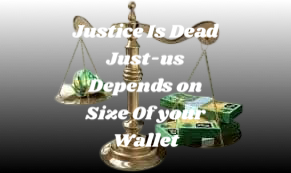In contemporary society, we often hear the phrase “the rule of law” touted as a cornerstone of democratic governance. However, upon closer examination, it becomes evident that this principle is frequently undermined by the existence of multiple layers of legal accountability. This phenomenon raises profound questions about the integrity of our legal systems and the equitable treatment of all citizens under the law.
At the heart of this issue is the troubling reality that politicians, bureaucrats, and business elites often operate within a sphere that seems to place them above the law. These individuals, wielding significant power and influence, frequently navigate the legal landscape with a sense of impunity that is inaccessible to the average citizen. This creates a dichotomy where the law is not uniformly applied, fostering an environment where those with wealth and status can evade accountability for their actions.
For the middle classes, the legal system offers a semblance of protection, albeit one that is stratified according to financial means. Legal accountability appears to exist, but it is contingent upon the resources available to individuals. Those with greater financial means can afford better legal representation, allowing them to manoeuvre through the complexities of the law with relative ease. In contrast, those with limited resources often find themselves at a distinct disadvantage, struggling to secure the legal protections that should be universally afforded to all.
Yet, for the most marginalised segments of society – the “just-us” individuals – this illusion of legal protection shatters entirely. In a system that is purportedly designed to uphold justice, these individuals often find themselves devoid of any meaningful legal recourse. The disparities in legal accountability lead to a situation where the most vulnerable are left to navigate a labyrinthine legal system without guidance or support. They become victims of a system that is not only indifferent but actively hostile to their plight.
This layered approach to legal accountability poses significant threats to the very fabric of our society. When segments of the population are treated differently under the law, trust in the legal system erodes. Citizens begin to perceive the law as a tool wielded by the powerful to maintain their dominance, rather than a framework designed to protect the rights and freedoms of all. Such disillusionment can lead to societal unrest, as individuals feel compelled to challenge a system that they believe is rigged against them.
Furthermore, the existence of these layers of accountability undermines the principles of justice and equality that are supposed to be the foundation of our legal systems. A society that permits such disparities is one that ultimately risks its own stability. The rule of law must be applied uniformly, without exception, to ensure that all individuals are held accountable for their actions, regardless of their status or wealth.
The notion that a society can function effectively amidst multiple layers of legal accountability is fundamentally flawed. True justice requires that all individuals—regardless of their position—be subject to the same legal standards and protections. It is imperative that we advocate for a legal system that is equitable, transparent, and accessible to all, ensuring that the rule of law is not merely an ideal, but a reality that underpins our society. Only then can we hope to build a future where justice is genuinely served and where every individual can feel secure in the knowledge that their rights are protected under the law.

